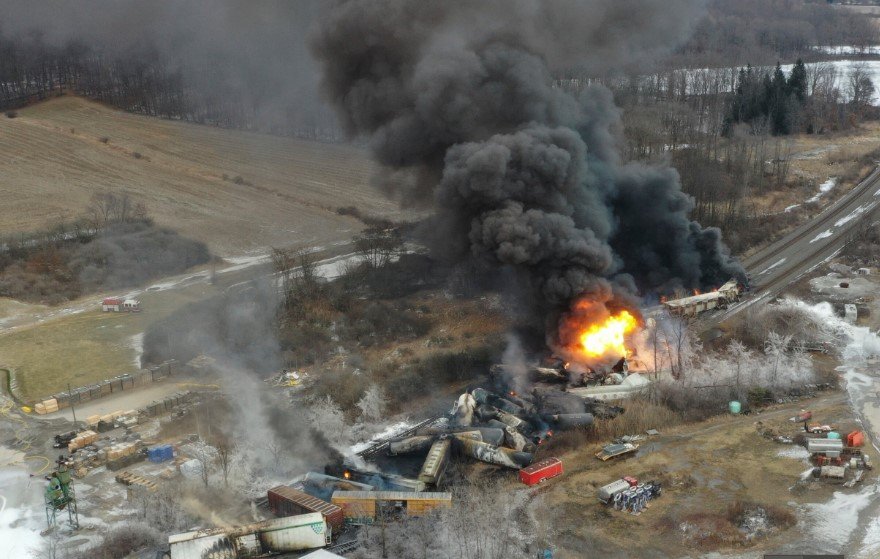In a recent hearing, the National Transportation Safety Board (NTSB) revealed its findings regarding the 2023 train derailment in East Palestine, Ohio. The incident, which involved a Norfolk Southern train carrying vinyl chloride, had significant consequences for the local community. Despite no fatalities or injuries, the aftermath left residents grappling with health issues and pollution concerns that remain unresolved.
The Derailment Incident
On February 3, 2023, around 9:30 p.m., a Norfolk Southern train derailed near the Ohio-Pennsylvania border. The train was transporting vinyl chloride, a hazardous chemical. In the days following the derailment, local emergency officials faced a critical decision: how to handle the toxic chemicals leaking from the rail cars. Unfortunately, their choice would have far-reaching effects on the environment and public safety.
The Controversial Controlled Burn
Three days after the derailment, local authorities opted for a controlled burn—a vent-and-burn procedure—to mitigate the risk of explosion. However, the NTSB now asserts that this drastic measure was unnecessary. Here’s why:

Temperature Misjudgment: Five of the derailed rail cars had been heated by a fire caused by the derailment. However, Norfolk Southern failed to detect that the cars’ temperatures had started to drop. As a result, the release of toxic chemicals became unnecessary because the danger of explosion had receded.
Faulty Detectors: Trackside detectors also played a role. They failed to identify how hot the temperature of a wheel bearing on the train had become 20 miles before the derailment occurred.
Environmental Impact: The controlled burn released a black cloud of smoke over the surrounding area, visible for miles. As vinyl chloride burned, it broke down into carbon monoxide and hydrogen chloride. When mixed with water, hydrogen chloride forms hydrochloric acid—a substance toxic to fish. Officials estimated that 3,500 fish in nearby waterways perished due to the venting. Additionally, burning vinyl chloride produces a small amount of phosgene gas, a chemical weapon used during World War I.
Lack of Communication: Norfolk Southern did not inform local first responders about information it had received from OxyVinyl, the manufacturer of the chemicals. OxyVinyl’s on-site team had inspected the train cars and found that the risk of explosion was low, and the cars were cooling.
NTSB Chair Jennifer Homendy emphasized that safety cannot be measured solely by the absence of fatalities or injuries. The impact on the community—both in East Palestine, Ohio, and Darlington, Pennsylvania—remains significant. The NTSB’s final report underscores the need for better decision-making processes in handling hazardous incidents like this one.

Comments